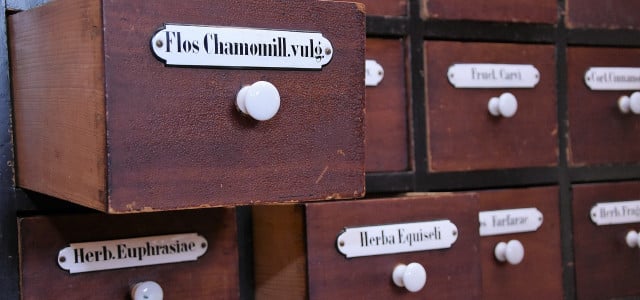
Local medicinal plants are still used today as an alternative to conventional medicines. Here you can find out how the ten strongest plants work.
Medicinal plants vs. conventional medicine
Medicinal plants work differently than conventional medicines. They do not only consist of a single active ingredient, but contain various natural substances. These include vitamins, minerals, trace elements, antioxidants and phytochemicals. The latter are usually responsible for the characteristic potency of a medicinal plant.
In addition to the main effect, medicinal plants usually have so-called side effects. There can also be other positive effects on health, for example lady’s mantle tea can not only help with diarrhea, but also with menstrual cramps. There can also be drug interactions.
It is best to consult a doctor before taking any medicinal plants – they can be toxic in high doses.
1st medicinal plant: the eyebright
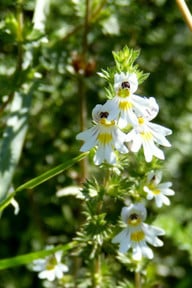
(Photo: CC0 / Pixabay / alsen)
Thanks to the iridoid glycosides, flavonoids and tannins it contains, eyebright is one of the medicinal plants.
- The medicinal plant can help with conjunctivitis, against inflamed red and watery eyes and with styes.
- Even if you have an allergy or your eyes are strained after long periods of screen work, eyebright drops can relieve your symptoms.
- If your mouth and throat are inflamed or you suffer from stomach problems, eyebright tea can help. Brew one teaspoon of dried eyebright with two tablespoons of the fresh medicinal plant in hot water.
Important: For the eyes you should only use germ-free eyebright drops from the pharmacy.
2. Medicinal plant: Valerian
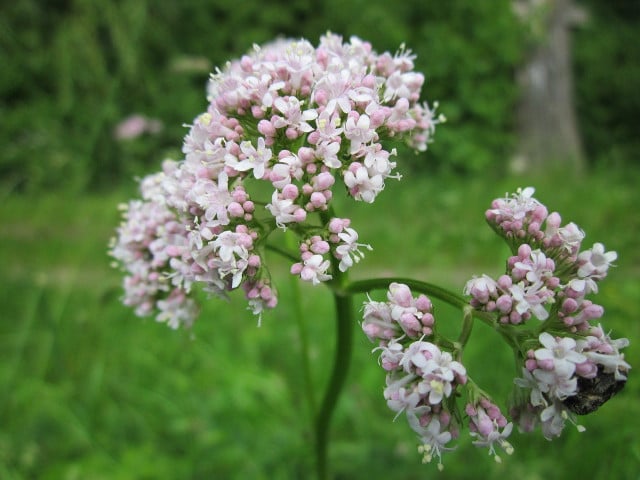
(Photo: CC0 / Pixabay / WikimediaImages)
The main healing components of valerian are essential oils, valerenic acids and lignans.
- Valerian can have a relaxing and sleep-inducing effect. Many people can fall asleep better and faster as a result.
-
Advantage: In contrast to synthetic sleeping pills, valerian does not affect your natural sleep rhythm. Even the so-called “sleeping pill hangover” stays away.
- It can also help with test anxiety and general nervousness.
You can use valerian as a tea or tincture. Important: Valerian does not have an immediate effect on everyone. You often have to use it for two to three weeks.
3. Medicinal plant: The stinging nettle
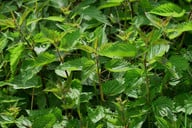
(Photo: CC0 / Pixabay / sipa)
The stinging nettle contains many health-promoting active ingredients. The most important are minerals and trace elements, especially iron and silicic acid, vitamins C, B2 and K1, carotenoids, flavonoids and bitter substances.
- The medicinal plant can help with bladder infections and prevent kidney and urinary stones.
- It can also relieve rheumatism in the muscles and joints.
- Nettle can work in liver and gallbladder disorders and balance digestion in constipation, diarrhea and flatulence.
- Nettle tea can also lower blood sugar.
- If you use nettle tea as a hair tonic, less dandruff will form on your head. The conditioner also stimulates blood circulation in your scalp. This allows your hair roots to be optimally supplied with nutrients – the hair should also grow faster as a result.
You can brew a healing tea from fresh or dried nettle leaves or use its root as a tincture. Important: Make sure you drink plenty of still water when you eat nettle. The medicinal plant has a strong draining effect.
4. Medicinal plant: Lady’s mantle
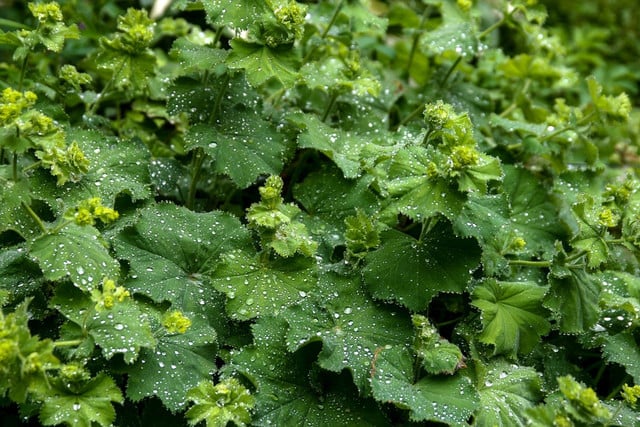
(Photo: CC0 / Pixabay / Blaumeise25)
Lady’s mantle works primarily through the tannins and flavonoids it contains.
- The medicinal plant is said to help with diarrhea.
- It can also balance out hormone fluctuations in women, relieve menstrual cramps and strengthen connective tissue.
You can use the medicinal plant as lady’s mantle tea or tincture.
5. Medicinal plant: St. John’s wort
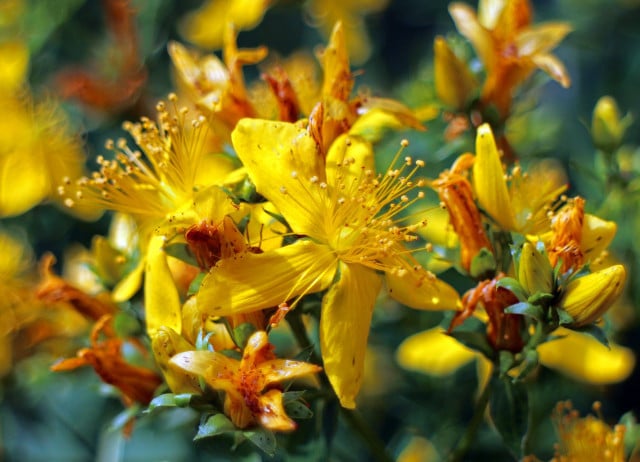
(Photo: CC0 / Pixabay / Antranias)
The health-relevant ingredients of St. John’s wort are flavonoids, procanidins and the secondary plant substances hypericin and hyperforin.
- St. John’s wort is said to have an anti-inflammatory effect and promote wound healing, for example in the case of burns, strains or bruises.
- As a powder, it can relieve gastrointestinal disorders.
- It is also said to help with mild to moderate depression and anxiety. Get medical advice, especially if you have a long-lasting depressive mood.
You can take St. John’s wort as an oil, tea, powder, tincture, or ready-made supplement.
What you should be aware of: St. John’s wort can lead to interactions with other medications, for example birth control pills.
6. Medicinal plant: chamomile
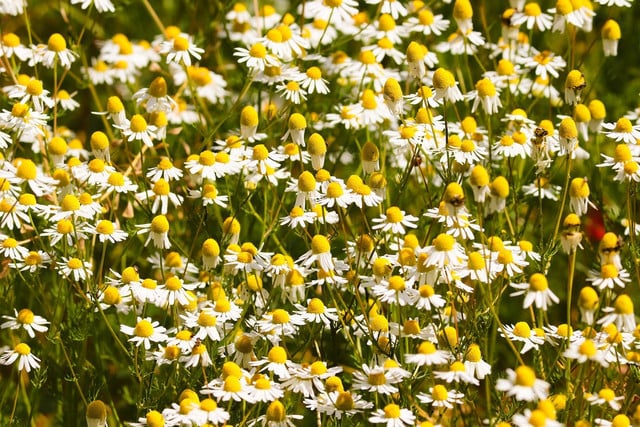
(Photo: CC0 / Pixabay / manfredrichter)
Chamomile has a healing effect because it contains essential oils, mucilage and flavonoids.
- The medicinal plant can have antibacterial, anti-inflammatory, digestive, wound-healing and antispasmodic effects. Chamomile teas, tinctures and oils also have a relaxing effect.
- Chamomile tea can relieve the symptoms of gastrointestinal diseases and digestive problems.
- A steam bath with chamomile relaxes irritated airways, for example when you have a cold.
- Applied externally, chamomile oils help with inflammation of the skin and mucous membranes as well as bacterial skin diseases.
- Chamomile tea can also relieve menstrual cramps.
You can use chamomile as a tea, oil, or tincture.
7. Medicinal plant: The dandelion
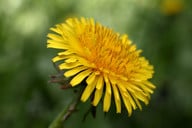
(Photo: CC0 / Pixabay / dtulupov)
Dandelion contains many health-promoting ingredients such as bitter substances, carotenoids, flavonoids, tannins, vitamins, minerals and mucilage. Its root also contains inulin.
- Dandelion stimulates the appetite, regulates the flow of bile and helps with feelings of fullness and flatulence.
- It promotes healing of bladder and kidney diseases and supports the liver.
- In addition, the medicinal plant can relieve pain that occurs with rheumatism and gout.
You can use dandelion as a tea or tincture.
In another article you will learn how dandelion tea works and how to prepare it.
8. Medicinal plant: the marigold
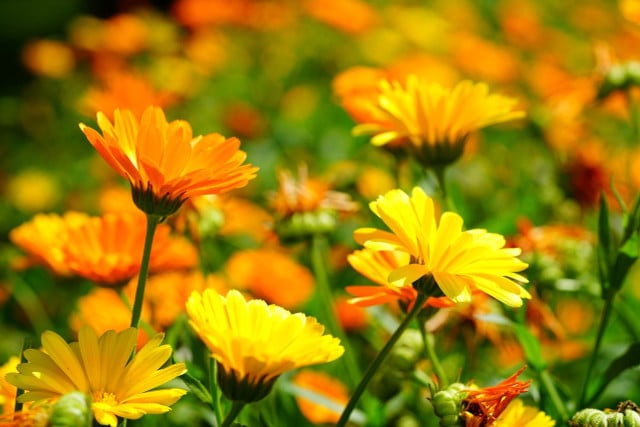
(Photo: CC0 / Pixabay / Hans)
The main healing components of calendula are saponins, triterpenes and flavonoids.
- The medicinal plant has an anti-inflammatory and antibacterial effect. In addition, it promotes blood circulation.
- Applied externally, marigold ointment helps with poorly healing wounds, burns, dry skin and eczema.
- When used internally, marigold tea works against gastric and intestinal ulcers.
You can use marigold as an ointment, tea or tincture.
9. Medicinal plant: yarrow
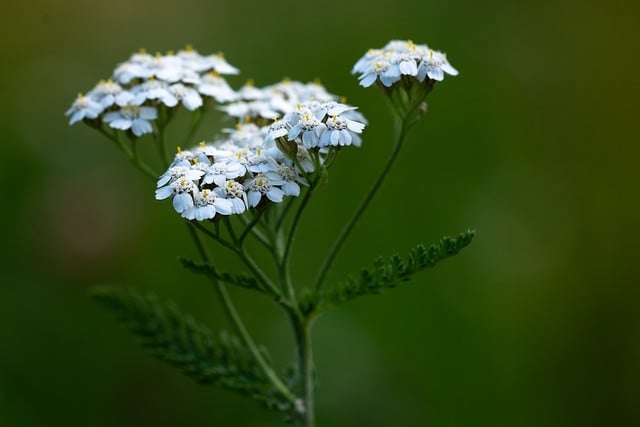
(Photo: CC0 / Pixabay / Pezibear)
Yarrow has a health-promoting effect due to the bitter substances, flavonoids and essential oils it contains.
- The medicinal plant stimulates the flow of bile and can help relieve cramps. It also has an antibacterial effect and promotes wound healing.
- It can help with loss of appetite, digestive problems, inflammation in the gastrointestinal tract and liver and gallbladder diseases.
- A sitz bath or compress containing yarrow herb extract can help skin infections and injuries heal faster.
- Yarrow can also relieve menstrual cramps.
You can use yarrow as yarrow tea, fresh plant juice or tincture.
10. Medicinal plant: buckhorn
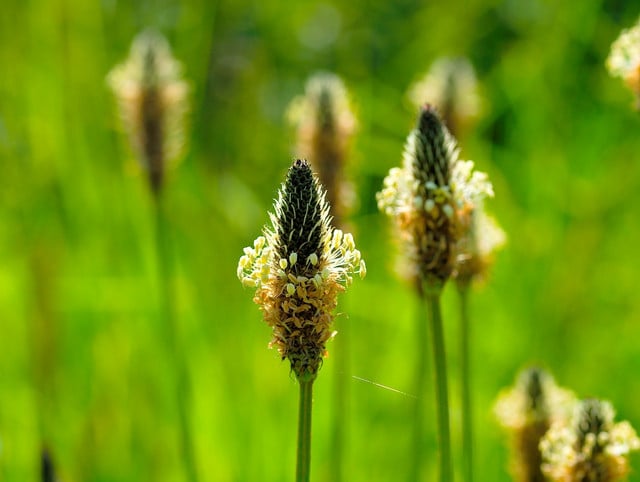
(Photo: CC0 / Pixabay / TopFoto)
Plantain contains the following active ingredients: tannins, idroid glycosides and flavonoids.
- The medicinal plant has a hemostatic, anti-inflammatory and antibacterial effect.
- Placing fresh, cleaned plantain leaves on small injuries or insect bites is quick and effective first aid when going for a walk or hike.
- If you take plantain as a tea, plant juice or syrup, the medicinal plant can relieve coughing, sore throat and toothache.
You can make plantain cough syrup and plantain ointment yourself.
Collect medicinal plants yourself
Many native medicinal plants grow in Germany in the garden or in the wild. So you can collect them yourself. Make sure to pick away from busy roads.
Caution: If you cannot identify a plant exactly, it is better to buy it at the pharmacy or in a herbal shop. Medicinal plants can easily be confused with poisonous plants because the plants often look very similar.
Another possibility: You can take part in a guided herb hike and learn from experts.
Read more on Techzle.com:
- Collect, identify, eat wild herbs: 11 tips
- Accelerate wound healing: How to heal your wounds faster – Techzle.com
- These 7 medicinal plants are natural antibiotics and pain relievers